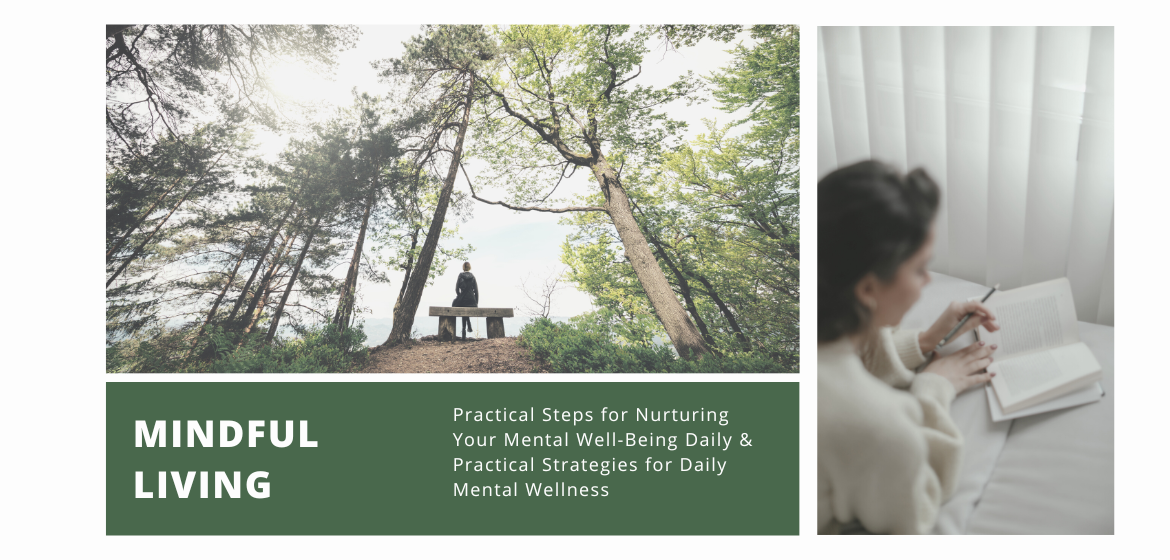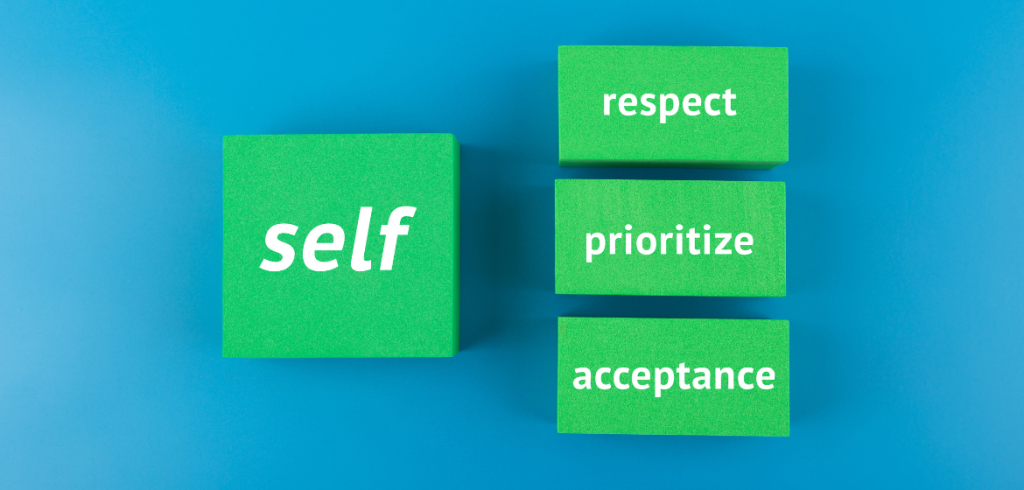
Mindful Living: Practical Steps for Nurturing Your Well-Being Daily
We often prioritise our physical health, career goals, and daily tasks, but neglecting our mental well-being can have profound consequences. Mindful living encompasses emotional, psychological, and social well-being, and it plays a pivotal role in how we think, feel, and act. In this article, we will explore the significance of mental wellness and offer practical strategies for incorporating it into your daily life.
The Significance of Mindful Living
The significance of mindful living cannot be overstated. It transcends mere absence of mental illness, for it represents a state of holistic well-being that encompasses emotional, psychological, and social facets of our existence. Mental wellness is the cornerstone upon which our ability to think, feel, and act effectively rests. It is the fertile soil from which our personal growth, resilience, and adaptability spring. When our mental wellness flourishes, we can confront life’s challenges with clarity and poise, maximise our potential, and contribute meaningfully to our communities. Neglecting mental wellness, on the other hand, can result in profound consequences, affecting not only our individual lives but also the well-being of those around us. It underscores the need for self-care, self-awareness, and compassionate understanding of our inner selves—a journey that encompasses not just the absence of distress but the cultivation of thriving, flourishing, and embracing the complexities of the human experience.
The Mind-Body Connection
The mind-body connection is a profound and intricate relationship that underscores the undeniable interconnectedness of our mental and physical well-being. It reflects the remarkable idea that our thoughts, emotions, and psychological states have tangible effects on our physical health, and conversely, our physical condition influences our mental state. Scientific research continually unravels the depth of this connection, demonstrating how stress, for instance, can trigger physical symptoms, from tension headaches to digestive issues. Conversely, physical activities, such as exercise, not only boost our physical fitness but also stimulate the release of endorphins, which elevate our mood. The mind-body connection, therefore, underscores the need for a holistic approach to health—one that recognizes that our bodies and minds are not separate entities but rather integral components of our overall well-being. By nurturing this connection, we can unlock powerful tools for promoting both mental and physical health, leading to a more harmonious and balanced existence.
Practical Strategies for Daily Mental Wellness
- Practice Mindfulness: Mindfulness involves being fully present in the moment and observing your thoughts and feelings without judgment. Regular mindfulness meditation or breathing exercises can help reduce stress and increase emotional awareness.
- Prioritise Sleep: Quality sleep is fundamental to mental wellness. Create a sleep-friendly environment, maintain a regular sleep schedule, and practice relaxation techniques before bedtime to improve sleep quality.
- Stay Physically Active: Regular exercise releases endorphins, which are natural mood lifters. Find physical activities you enjoy, whether it’s jogging, yoga, dancing, or simply taking daily walks.
- Maintain a Balanced Diet: Nutrition affects brain health. Consume a well-balanced diet rich in whole foods, including fruits, vegetables, whole grains, lean proteins, and healthy fats. Omega-3 fatty acids, found in fish and flaxseeds, are particularly beneficial for mental health.
- Limit Stressors: Identify sources of stress in your life and take steps to manage them. This might include setting boundaries, practicing time management, or seeking support from a therapist.
- Seek Social Connection: Human beings are inherently social creatures. Nurture your social relationships by spending time with loved ones, engaging in activities you enjoy together, and seeking support when needed.
Incorporating Mental Wellness at Work and in Relationships
Mental wellness is not limited to your personal life; it also plays a significant role in your professional and interpersonal relationships. Here’s how you can foster mental wellness in these areas:
At Work:
- Set Boundaries, maintain a healthy work-life balance by setting clear boundaries between your professional and personal life. Avoid excessive overtime and unplugging from work when you’re off the clock.
- Take Breaks: Incorporate short breaks during the workday to recharge. A walk outside, a few minutes of deep breathing, or even a quick chat with a colleague can refresh your mind.
- Communicate Openly: If work-related stressors are affecting your mental well-being, don’t hesitate to communicate with your supervisor or HR department. Many workplaces offer resources and support for mental health.
In Relationships:
- Effective Communication, healthy relationships thrive on open and honest communication. Express your thoughts and feelings clearly and listen actively to others.
- Conflict Resolution: Learn constructive conflict resolution skills to manage disagreements and disputes in a way that preserves the relationship’s well-being.
- Quality Time: Dedicate quality time to nurturing your relationships. Whether with family, friends, or romantic partners, meaningful connections require time and attention.
- Boundaries: Set and respect personal boundaries within relationships. This helps maintain a healthy balance between your own needs and the needs of others.
 Incorporating mindful living into your daily life is an ongoing journey, not a destination. It involves a commitment to self-care, self-awareness, and self-compassion. By prioritizing practices that promote mental wellness, you can build resilience, increase emotional well-being, and enhance your overall quality of life. Remember that seeking professional help when needed is a sign of strength, not weakness, and that you are deserving of the support and care required for your mental well-being.
Incorporating mindful living into your daily life is an ongoing journey, not a destination. It involves a commitment to self-care, self-awareness, and self-compassion. By prioritizing practices that promote mental wellness, you can build resilience, increase emotional well-being, and enhance your overall quality of life. Remember that seeking professional help when needed is a sign of strength, not weakness, and that you are deserving of the support and care required for your mental well-being.

























